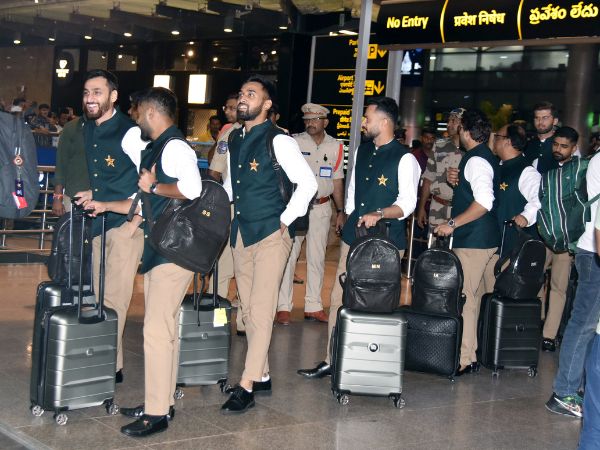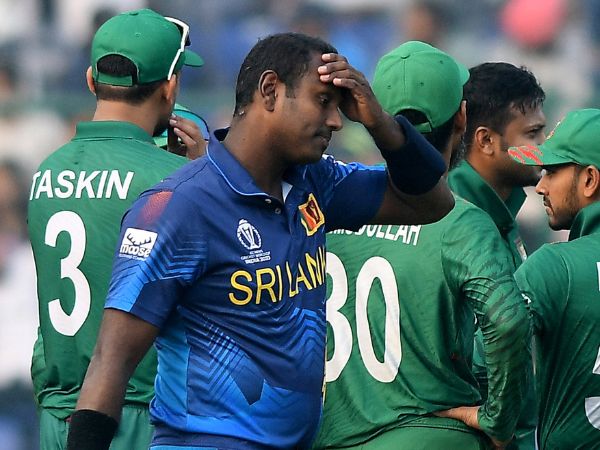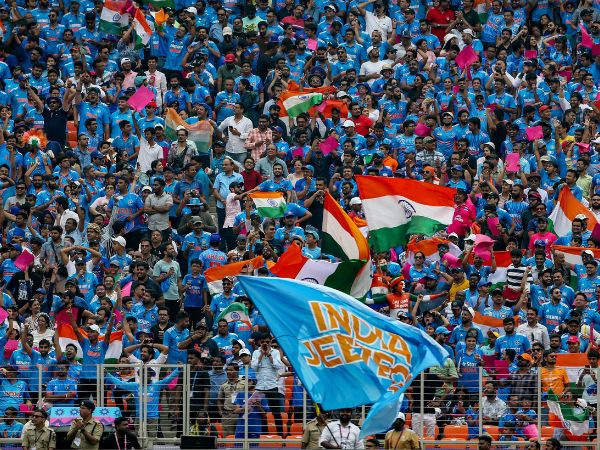- Wednesday, May 08, 2024
The South Asia expert said the variety of nationalism and how it plays out is not just an India-Pakistan story, but also those between Pakistan and Afghanistan and Pakistan and Bangladesh.

By: Shubham Ghosh
CRICKET plays a significant role in building nations and national identities in South Asia. Most or all the states in the region, that were once colonies of British imperialism, took up cricket, a white men’s game, as an important vehicle of construction of identities that often clash in the 22 yards, fuelled by an aggressive nationalism.
The current edition of the 50-over World Cup has seen such instances where nations clashed both on and off the ground over the sport. Out of 10 teams that took part in the competition, five are from South Asia and players as well as supporters and even former players were seen courting controversies on many occasions by targeting their opponents, sometimes even by allegedly violating the spirit of the Gentleman’s Game.

India Weekly spoke to Michael Kugelman, director of the South Asia Institute at the Wilson Center in Washington DC and a leading expert on Afghanistan, India and Pakistan over the matter and while conceding that ‘toxic nationalism’ exists in South Asia, he said that things are not much different in other parts of the world.
“Toxic nationalism is a reality in South Asia, but isn’t that the case in so much of the world? It’s a consequence of a certain brand of political leadership, of divided societies, and of an increasingly powerful social media that thrives on and intensifies polarisation,” he said.
When the news outlet asked him about the instances when a Pakistan cricketer dedicated a century at the World Cup to the Palestinians in the ongoing Israel-Hamas conflict in the Middle East or an Afghan player recalling the expulsion of his country’s refugees from Pakistan after registering a win over the neighbours, Kugelman said the cricket World Cup, despite the incidents mentioned above, brought with it a few breaths of fresh air.
“Pakistan’s squad was able to go to India, and it was greeted warmly by large crowds when the team arrived. Even a few years ago, that would have seemed an unlikely prospect,” he said.

Kugelman, who has also written extensively and authored and co-edited books, said it is difficult to curb toxic nationalism in South Asia, adding that it is exacerbated by the legacy of traumatic wars of independence and hot and disputed borders.
For him, the absence of a unifying regional mechanism worsens the South Asian problem.
“South Asia has the added disadvantage of one country (India) being so much more powerful than the rest of the region—a unique characteristic that one doesn’t find in many other regions. Indeed, toxic nationalism and how it plays out is not just an India-Pakistan story. It’s a Pakistan-Afghanistan story and a Pakistan-Bangladesh story. But it’s also a story tied to India’s relations with a wider region that in many cases views New Delhi as a bullying neighbour,” he told India Weekly.

This World Cup saw an ugly episode unfolding when a Sri Lankan batter was timed-out in the match against Bangladesh even before playing a single ball. Angelo Mathews reportedly wasted the stipulated time after entering the ground when his helmet was found to be defective and despite approaching the opponent team’s captain and the on-field umpires, he was sent off.
Bangladesh and Sri Lanka have grown a cricket enmity of late and the Mathew incident added fuel to the fire, leading to a major uproar.
“I don’t know if it was right or wrong but I felt like I was in a war,” said Bangladesh captain Shakib Al Hasan.
These ‘wars’ manifest often when South Asian nations lock horns in the cricket ground. While it was limited to India versus Pakistan earlier, rivalries between India and Bangladesh, Afghanistan and Pakistan, Sri Lanka and Bangladesh and sometimes between India and Sri Lanka have fast emerged as other theatres of war.
Has generational change failed to reduce this hostility? Many felt that the trauma of partitions of South Asian nations and the acrimony would die down with new generations coming up since they do not carry the baggage of the traumatic memories like their ancestors.
But Kugelman thinks otherwise.
“Generational change isn’t necessarily the solution to this challenge; there are plenty of younger South Asians that express just as much if not more hostility to their neighbours than did their parents and grandparents,” he said.
It is rather an improved leadership that can address this problem, he felt.
According to Kugelman, South Asia requires leaders who are willing to swallow the political risks of trying to reconcile with neighbours. There are also ways to do that, he added.
Given the fact that South Asia and the world today face major threats that can not be limited by borders, such as climate change and pandemics, it should act as a strong incentive to bury the hatchet and find ways to cooperate to address shared challenges, he said.
“If South Asian leaders can make that happen, the region’s future — as a more integrated and stable place — will be much brighter,” he added.
![]()